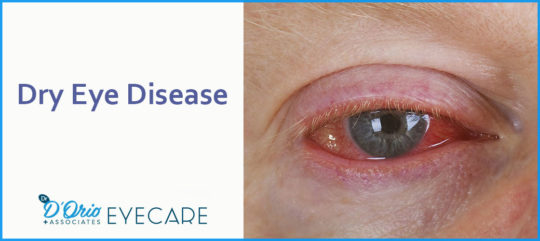
30 Aug DRY EYE DISEASE
Everyone in their lifetime experiences the annoying discomfort of dry eyes. Some symptoms include irritation, redness, tearing, blurred vision and easily fatigued eyes. With that said, many conditions and products that we deal with in our daily lives cause dry eyes: Menopause, antihistamines, certain medications, contact lens intolerance, autoimmune disease, dermatitis, allergens… etc. But, having these aforementioned conditions or using these products doesn’t mean that you have Dry Eye Disease (DED).
One of the most common problems that many optometrists face in their interactions with patients is the problem of DED – a disease that affects a large part of the population in North America. As you age, your chances of getting DED increase. Women are twice as likely to suffer from this disease over men. Many cases of Dry eye Disease go undiagnosed because many people downgrade the seriousness of this problem to a symptom. Unfortunately this lack of understanding of the severity of this disease decreases the importance of early diagnosis and treatment, which if left untreated can progress to chronic ocular surface disease, a serious eye condition that greatly affects vision and quality of life.
We understand the severity of this disease, which means that we won’t prescribe eye drops to ‘quick fix’ this very common and misunderstood problem. If you are experiencing any of the problems that are mentioned in this message then contact us for a full workup so that we can determine if dry eyes is the primary problem or if it is a secondary problem that might lead to more severe issues. The following is the full workup that we implement to determine the cause of dry eyes:
• A survey to help score your level of dryness.
• A tear lab, which measures osmolarity (the salt content of your tears).
• Inflammase test to check for inflammation.
• Phenol red test to measure the amount of tears that a patient is producing.
• A visual examination via a microscope by your optometrist.
• All of this data is used to determine if the patient needs a course of products.
Our location at St. Clair is fully equipped to check for Dry Eye Disease. Contact us before this becomes a problem that could have been prevented.


